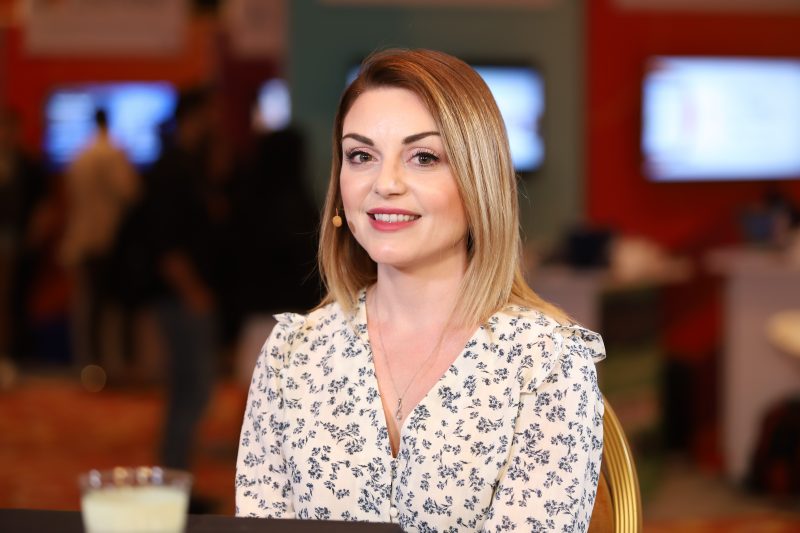Last month, the Oscars released new guidelines aimed at increasing inclusion in film which would prevent top awards from going to projects that don’t meet specific diversity quota. While the move was polarizing, one thing was obvious in the rhetoric from supporters and critics, alike: representation in media matters.
“Dominant narratives, for better or worse, inform the way we feel and behave,” says Tina Mulqueen, founder and CEO of Kindred Marketing. “So we have a responsibility to be considerate when we think about how groups are represented in the media.”
Research by the American Values Institute supports her statement. “Codified through repetition, stereotypes solidify a narrative perpetuated by the media into our culture and ultimately, through schemas, into our unconscious,” the study reads. “These stereotypes then become the lens through which individuals are viewed and treated. A Black man is too often ‘seen’ as potentially dangerous or presumed to be an athlete or entertainer rather than a doctor, lawyer, teacher, or father. An Asian-American woman is ‘seen’ as deferential, and an Asian-American man as skilled in math, but socially awkward. In our current political climate, many who appear Latino or of Middle-Eastern descent are presumed to be non-citizens: the ultimate exclusion. And outside of historical caricatures, Native Americans are often not seen at all.”
Mulqueen says “the solution, in the simplest terms, is for minority groups to tell their own stories, on their own terms.” Current research shows that 83 percent of Black Americans say the media still perpetuates negative Black stereotypes, while 92 percent of Black Americans and 82 percent of Americans overall want to see more diversity in media.
Minority driven media narratives are growing.
“Minority-owned production companies in Hollywood are growing in number, and they’re fighting for better representation on screen as well as behind the scenes,” Mulqueen explains.
And behind the scenes behind those scenes, supporting production companies like these for years, has been Kindred Marketing, a Portland-area firm dedicated to advancing DEI in the media landscape. Through marketing campaigns, case study building, and brand positioning strategies, they’ve helped DEI-motivated media brands get the attention they need to stimulate the growth they deserve.
Kindred selects clients and projects in line with their DEI values, sometimes even offering pro-bono work through their nonprofit arm, Cause Influence, to be sure the work gets done.
“When you’re clear on your personal purpose, determining the projects that you want to push forward becomes straightforward. I never wanted any of those important projects to stall because of lack of funding, and that’s why we started Cause Influence,” says Mulqueen, who INC called one of the industry’s top young communications professionals.
Folio also named her one of 2020’s top women in media. Mulqueen’s writing has been featured widely by publishers like Forbes, Huffington Post and Elite Daily and Today, where she’s drawn accolades for her thought leadership in sustainable marketing and entrepreneurship.
Through Cause Influence, Mulqueen also launched Et al. Media, a news media outlet for marginalized voices. She, along with managing editor and Kindred’s head of content Brian Oaster, have developed Et al. as a place where underrepresented perspectives can find a platform.
Dominant media voices are taking a second look at their blind spots.
“The whole media world is having a long overdue reckoning,” Mulqueen says. “Many brands are now becoming aware of their blind spots, and are scrambling to create meaningful internal change.”
Mulqueen has handled crisis brand management for major national publishers whose names have gone viral for workplace discrimination. “In these cases, the tack is not to make the brand look better, but to restructure the workplace so they do better,” Mulqueen explains. “Measurable results that make women and minorites more comfortable, confident and successful in the workplace are the most important metrics. Sometimes that’s a steep learning curve, but the authenticity behind it is important. Otherwise company DEI slogans are just empty words.”
Mulqueen says sustainable marketing is inseparable from DEI. She describes sustainable marketing in the digital media world as “moving away from the monetization of user attention, and toward fostering choice, value and authentic relationships between brands and consumers.”
But she also explains how this is intersectional. “A brand without diversity isn’t authentic,” she points out. “A brand without structural gender equity isn’t sustainable. So when we talk about sustainable marketing, corporate social responsibility, and DEI, we’re talking about different facets of the same thing.”
Mulqueen urges minorities to reclaim the power of media bias.
“People should be empowered to manage how they’re perceived by telling their own stories,” Mulqueen says. “The powerful role of media in perpetuating bias means media also has the power to create more authentic, complex narratives that truly represent the human experience across illusory racial divides.” In other words, as much as media can create racist or otherwise bigoted stereotypes, it can also dismantle them.
As the need for diversity in Hollywood, and elsewhere in media, becomes more prominent in public discussion, companies like Kindred continue to work quietly behind the scenes to push for a more diverse, equitable and inclusive media landscape.


